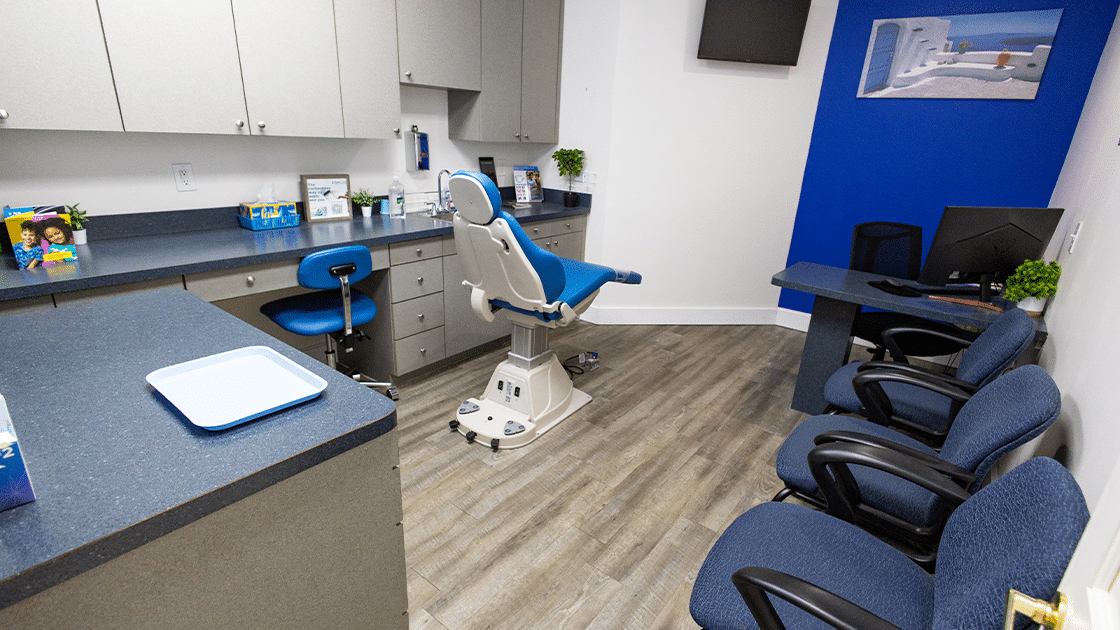
Advanced Orthodontics performs surgical orthodontic procedures in Canton, MI. To schedule a consultation, please call our office at
.What Is Surgical Orthodontics Treatment?
The practice of surgical orthodontics is also known as orthognathic surgery. These surgeries correct severe orthodontic issues like bite problems, jawbone abnormalities, and malocclusion.
Orthognathic surgery is considered a major procedure performed in a hospital. It involves repositioning the lower or upper jaw for better alignment.
Patients cannot undergo orthognathic surgery until their jaws reach their full growth. Full growth happens by age 16 for women and age 18 for men.
Benefits of Surgical Orthodontics Treatment
- Bite Correction. Braces and aligners can correct less serious bite abnormalities, but advanced overbites, underbites, and open bites may need surgical treatment. After surgery, patients will find it easier to bite and chew their food.
- Airway Improvements. A jaw out of position can interfere with patients' breathing and swallowing functions. Orthognathic surgery enables these patients' throats and airways to function properly. It can also help with symptoms of obstructive sleep apnea caused by jaw malformation.
- Speech Improvements. Severe malocclusions and bite issues can lead to significant speech problems. Jaw surgery may allow clearer speech.
- Prevent Excessive Tooth Wear. A poor bite often causes extreme tooth stress. Grinding and clenching cause more damage when the teeth are out of alignment. Surgery can bring the teeth into a more harmonious position to prevent further damage.
- More Aesthetic Facial Appearance. Jaw issues may cause facial asymmetry or a receding chin. While aesthetics are not the primary reason these surgeries happen, correcting anatomical problems can brighten the patient's smile and improve their self-esteem.

We welcome all family members to our practice, offering care for children and adults. We offer convenient after-school and Saturday appointment times to accommodate busy family schedules.
Procedures Offered

Orthognathic Surgery
The primary method of orthognathic surgery is cutting the upper or lower jawbone and repositioning it for proper placement. Some procedures also use bone from different body parts to build the jaw. The surgeon uses screws, plates, elastic bands, or wires to hold the jaw in its new position while it heals.
While orthognathic surgery is invasive, it corrects many orthodontic issues that are not otherwise treatable. Patients who have lived with profound orthodontic problems can find relief and enjoy a functional and aesthetically appealing smile.
If you are struggling with misaligned teeth or issues with your bite, our experienced orthodontist in Canton can help you achieve a healthier smile. Whether you need surgery to correct jaw alignment, clear aligners for a discreet option, or a custom retainer to maintain results, our office is here to support patients at every stage of treatment. Improving your jaw function and appearance is our priority, and our care is highly recommended for those seeking lasting results. Contact us today to learn how surgical orthodontics can transform your smile.
Frequently Asked Questions About Surgical Orthodontics Treatment
Call Advanced Orthodontics
While we can address most orthodontic issues with less invasive methods, orthognathic surgery can help patients overcome significant oral and general health issues. To determine whether you would benefit from orthodontic surgery, please call our Canton, MI office at
to schedule a consultation with Dr. Singh.